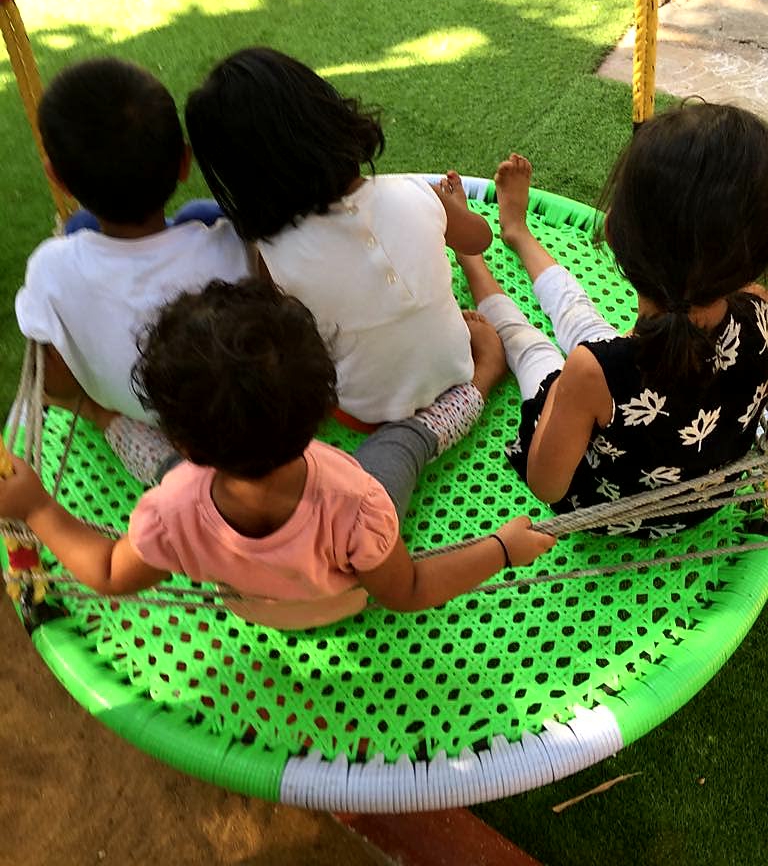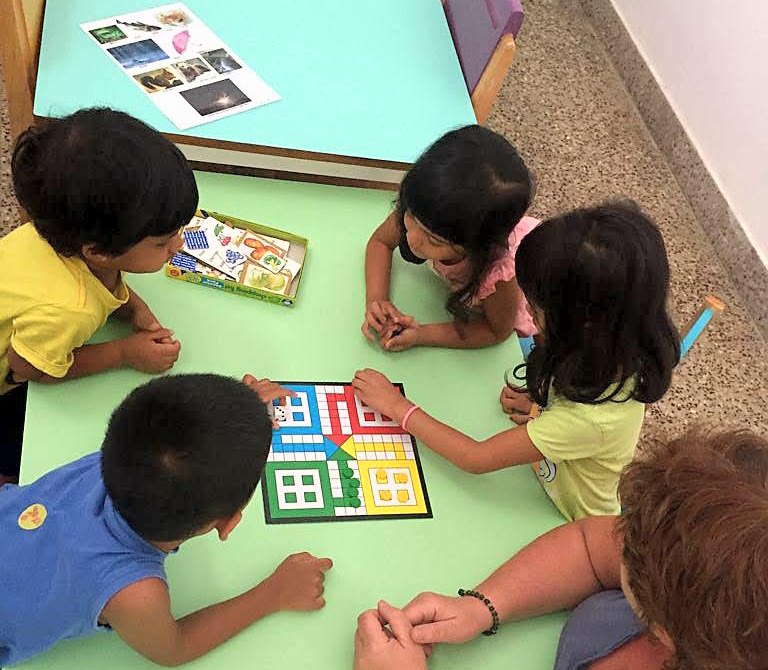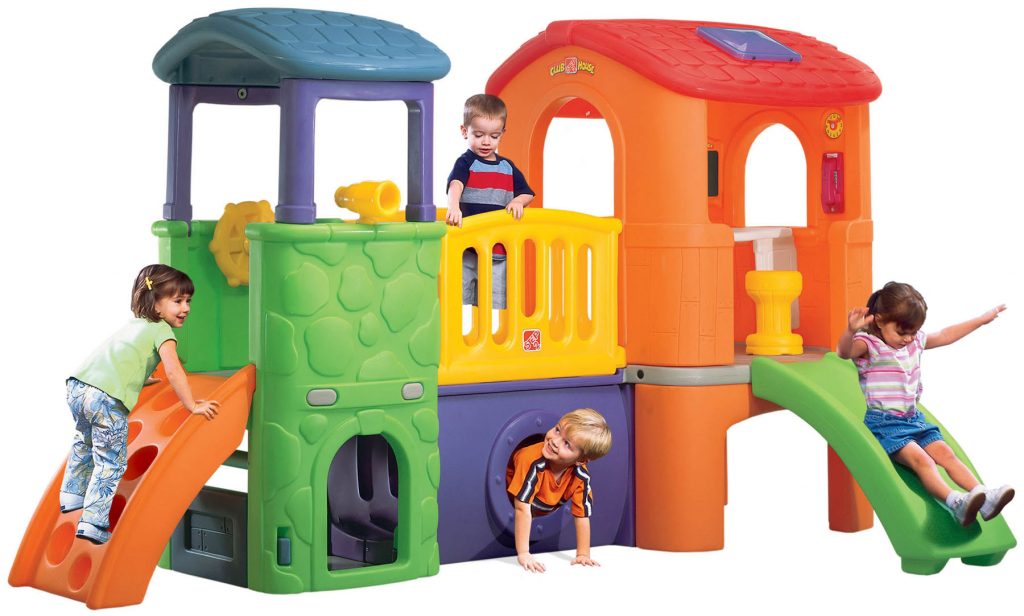There is a most wonderful Documentary Series that I actually binge-watched called The Beginning of Life directed by the talented Estela Renner, supported by the UNICEF and featuring early childhood experts from across the globe. It was created in response to advancements in neuroscience that uncover the crucial role that the early years of children’s lives play in determining their future successes. In the documentary, experts talk about how children learn more in the first years of their life (birth to 6 years) than they will ever learn again.
These initial years form the period for the most rapid brain development when 700 to 1000 new neural connections are being formed every second.
And as a Co-Founder of a Scandinavian Kindergarten, the significance of what we do couldn’t have become more crystal clear.
Providing children with experiences and opportunities for them to connect the dots that make this world – through sensations, emotions and interactions – becomes one of the most important parts of the early years’ protocol. As a parent or caregiver and definitely as a Kindergarten, we can literally grow or limit a child based on what these experiences are, that we can create or allow or encourage.
You may also like:Â 5 indoor activities to do with your toddler when it is pouring!
Why a child learns best through playÂ
And so when we started Papagoya, we asked ourselves, what then is the right type of education in these early formative years that will create, allow and encourage children to meaningfully experience life, and that will aid their brain development?

We turned to the Norwegian Kindergarten Model for many reasons, but the specific part of the Norwegian Curriculum that resonated with us deeply is where it is described in detail that the early years follow a sequence of care, play and then learning. When a child feels cared for and are comfortable in their environment, they will play freely. And through all forms of play, enters the experiences and opportunities for learning. There is no switching up this order, and there isn’t a more effective way to nurture or aid children’s learning. A child learns best through play.
So essentially in these early formative years, there is no room really for teaching as we traditionally know it in India. And so the words “Educationâ€_x009d_ and “Early Yearsâ€_x009d_ actually sit at opposite ends of a spectrum of learning.

Children are inherently designed to learn, constantly. We see this firsthand at our Kindergarten, every day. They are born curious and eager, and more than often the 3-6-year-olds that spend their days with us, start their sentences with why, how, when, who or what. Children have a natural sense of observation and wonder, and we often find the 1-3-year-olds spending a long time laying on their back counting mangoes or looking for birds in our mango tree.

And we recognise that they learn best when concepts are introduced to them through live social and sensorial experiences – we often conduct an exercise at Papagoya where the children feel ice cubes and watch them melt to reveal frozen animals. This then becomes a great way to talk about the animals in the Ice Age, learn the difference between hot and cold, and even discuss global warming. We also know and see every day that they learn most from human interactions and less from toys, tablets or traditional classrooms.
You may also like: Activities to keep your toddler occupied when you are busy at home
What does play do to a child?Â
Playing is a child’s way of experiencing, understanding and creating their own world. Ours is an entirely play-based Kindergarten and we constantly observe children developing while playing on their own and with others, during active free play and adult-led play. Playing doesn’t just enable learning or the development process, but in fact it is the process itself. Play is the education in the early years.
You may also like: Best indoor play areas in Mumbai

In the early years, as a parent, to be able to provide your child with learning opportunities through meaningful play experiences is the best form of education you can choose. If a child’s experience is full of conversation and relationship building, play and social understanding, and imagination – their brain soars and they build multiple expectancies related to those experiences.
You may also like: Best play areas in Chennai
There is a globally emerging realisation of the importance and value of the early years. A child’s brain development is acknowledged as being influenced in equal measure by the environment it grows up in, and by its inherent genetic makeup.
- Choose the environment your child grows up in wisely (type of kindergarten, caregiver).
- Acknowledge that academic readiness is not even a valid gauge for children under 6 years and instead focus on the physical, social and emotional development of your child.
- This is the period when the foundations are laid for lifelong learning and human development, so believe in the value the early years.
- And lastly, remind yourself that in these early formative years – Play is a child’s education.
You may also like: Are parents losing sight of why play is important for a child?
Don’t forget to follow us on Facebook, Twitter, Pinterest, Soundcloud & Instagram or subscribe to our YoutubeChannel for more information.


















